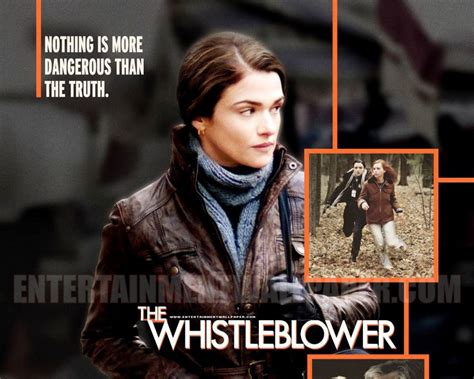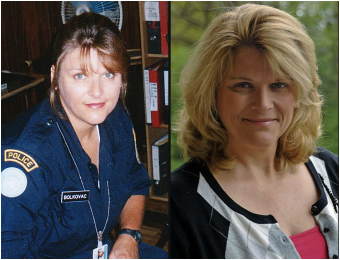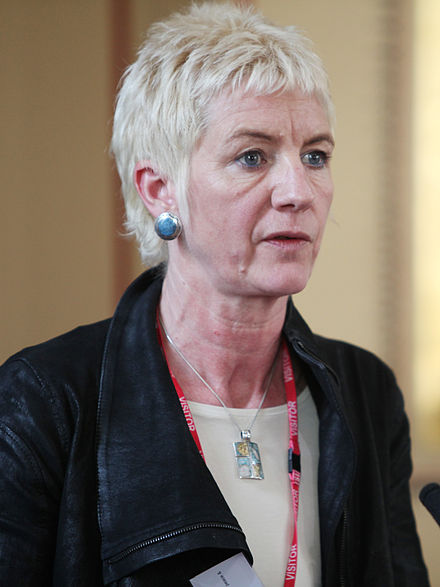I rarely talk about the practical life-saving applications of speaking another language. But the topics of female sex trafficking and bride kidnapping make me wonder about how speaking another language, particularly English, could liberate women who would otherwise be shackled to brothels or unwanted marriages.
Sex trafficking in Eastern Europe

When I saw the movie, The Whistleblower, a true story about the UN’s complicity in sex trafficking of young women from the former USSR to work in the brothels serving NATO troops, the UN Police Force (IPTF) and other international clients, I was not only sickened by the story, but I wondered if speaking English could have helped the abducted girls escape from their captors.

In the movie, Rachel Weisz plays Kathryn Bolkovac a police officer from Nebraska, United States working in the international police force in Sarajevo, Bosnia, after the Bosnian War. To her horror, she discovers that her colleagues at the police force are collaborating with local brothel owners, diplomats, and international agencies, such as the UN, to illegally bring in girls from the former Soviet Union and Eastern Europe to work in bars that serve as brothels. The trafficked girls thought they were going to work in hotels and legitimate businesses in Germany. Instead, they were smuggled into Bosnia, had their passports taken by the brothel owners and forced to have sex with foreign “aid” workers, military, police and other internationals. The stolen women had to relinquish their earnings to the bar owner to pay for their passage. They were undocumented indentured sex slaves who were stuck in a former war zone with no way of getting home.
Sex slaves don’t speak English, have trouble communicating with international organizations trying to help them
In a scene from The Whistleblower, Weisz meets, for the first time, the abducted and abused girls, one of whom is speaking English. This is fiction. In reality, trafficked women most likely don’t speak such good English. If they did, they would have had more of a chance to escape because they would feel confident that if they got away from the brothels, they’d be able to communicate.
It is too bad that the movie incorrectly shows the girls speaking in English because it shows them as more powerful and able to communicate than they really were.
I know for a fact that the safe houses in Bosnia for trafficked women from the former Soviet Union needed a Russian interpreter because I was either asked to volunteer or I offered my services to interpret from Russian to English for these women and girls.

Vanessa Redgrave plays Madeleine Rees (Head of the UN High Commission for Human Rights in Bosnia) in the movie. I met Rees at an outdoor party in Sarajevo where she told me about her work to prevent trafficking. Either Rees or my friend working for the UN High Commission for Refugees told me the safe houses needed a Russian speaker to interpret for the girls who were trying to get back home and recover from their horror.
The movie impacted me deeply as it was not just a true story being played out on screen, but the movie was set on or around the same time frame I lived in Bosnia (2000-2001). Since I am from the former Soviet Union, I take the cases of child and adult sex trafficking very seriously. I wonder what would have happened to me had I grown up in Russia and not come to the US. Could I have been tricked into leaving Russia, only to end up in a brothel against my will?
I discussed this with a woman in Boston who deals with rape victims in the US and sex trafficking worldwide. She disagrees with my idea of English language ability being a key out of bondage. She says that these trafficked women have such a fear of authority because of all of the police, military and diplomats complicit in the sex trafficking industry. Even if the women do speak English, they would not turn to the police or United Nations for help because they distrust the ability and will of those organizations to do the right thing and help them get home.
Nonetheless, I do see English language knowledge as key in giving women in non-English language countries freedom and safety when abroad, especially when they are illegally trafficked into another country. If they can’t speak English, how else will they be able to communicate with international agencies whose job it is to help them? Yes those agencies have interpreters, but they may not have enough. If I was asked to volunteer in Bosnia, that means there were not enough staff interpreters to handle the need.













Wow. Heavy topic and one that is unfortionately growing in our world. u00a0I worked with my high school students to create an awareness film about modern slavery, sex slavery included, after reading Uncle Tom’s Cabin. u00a0They – and I – were shocked by the findings of our research. u00a0Would English empower these ladies? u00a0Probably and it would for sure give them more options once out to find real work and restart their lives. u00a0The problem seems to be in the question of how one goes about teaching them? u00a0Any ideas?
Aaron, it’s wonderful that as a teacher, you made your students learn about modern slavery. I never had to do that when reading Uncle Tom’s Cabin or studying slavery. nnAs regards to how to reach female populations vulnerable to sex slavery, this is what I am thinking about. I seriously think it’s going to take online education and radio and TV programs worldwide to carry language learning programs. The Brazilians are already doing this with TV Escola (School TV) which plays lessons on all sorts of subjects early morning before people go to work and school. This way, even adults who want to advance their lives can learn educational topics while getting ready to go to work. nnMy goal is to create a movement with actionable steps for people to learn languages, even if they have no money and have no schools nearby. nnSusanna
I can attest to this happening near overseas US military bases. While stationed in S. Korea I met dozens of girls working as “waitresses” in the bars I frequented steps away from the military gates. Most of these women were Filipino and Russian whom had been deceived into the situation and also had their passports taken away by the bar owners. Most did not prostitute themselves and were not forced into anything but in order to retrieve their passports they needed to “buy” it back for $3500, which for most of them I heard took a few u00a0years. I imagine the those women taken to work away from military bases have it the worse. The Russian friends I made told me their stories and I was truly appalled and surprised that the military police had done nothing to help these women. 90% of the Russians girls I met were educated professionals(computer techs, painters/sculptors, actresses, teachers, etc) u00a0out of a job in Russia and tricked into believing they would be working as models in S.Korea or as waitresses for Korean diplomats. Luckily an enamored soldier took this situation to military Chaplains, and they were able to save his Russian girlfriend from these people. Needless to say, this whole scheme wasu00a0dismantled…at least near Camp Stanley in Uijongbu.u00a0nn
Orlando, Thanks for sharing what you saw at Camp Stanley in Uijongbu, South Korea. I am assuming the Russian girlfriend of the US military officer spoke English and could therefore communicate to him and to others what was going on. Did the other Russian women you met speak English? How did you communicate? Did the South Korean government then get the women’s passports and return them to the women and provide them safe passage back home? Susanna
It was mutual effort u00a0from the the Russian women and the G.I’s regarding language skills but Russian women didu00a0speak much more english than we did russian. Communicating in English was key for them. The women did get their passports back, however, many stayed and worked near the base now that they knew they could return home anytime.nnYou know this happens everywhere in the world, if more traveling Americans would attempt to learn even basic phrases in the language of the countries they visit there could be some attenuation in this type of activity.
[…] November and December 2011, I wrote two blog posts on female sex trafficking in Eastern Europe, and bride kidnapping in Central Asia and how speaking another language, particularly English, […]